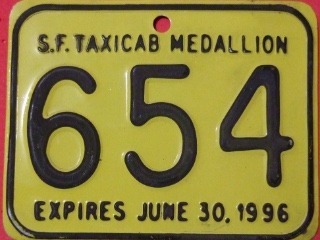DUOS expands AI capabilities to help seniors apply for assistance programs
It will complete and submit forms, and integrate with state benefit systems
Read more... My 2016 predictions are not off to a great start.
My 2016 predictions are not off to a great start.
In spite of my hopes that taxis would thrive in the new year, the biggest taxi company in San Francisco, Yellow Cab Co-op, is filing for Chapter 11 bankruptcy, according to statements received by the San Francisco Examiner.
Yellow Cab Co-op President Pamela Martinez has told the organization’s members that it is “in a midst of serious financial setbacks,” most obviously brought on by the massive disruption wrought by ridesharing companies Lyft and Uber, both of which are headquartered in San Francisco.
From a passenger’s perspective, it was obvious that these new upstarts would steal business from taxi companies, as most taxi companies had been plagued by problems both on the driver’s side (belligerence when handed a credit card or asked to drive across town) and on the company side (failure to innovate).
Beyond the problem of ridesharing companies, however, Martinez says Yellow Cab is “faced with fiscal obligations that far exceed expected income.” Jim Gillespie, former president of Yellow Cab, said that a large number of claims as well as "high awards and high settlements that got to us well over a million dollars in a couple cases” has become too much for the company to pay.
But this doesn’t mean Yellow Cab is disappearing. The company is filing for Chapter 11 so that it can leave it debts behind while focusing on restructuring the business. Whether the company will be able to tackle the challenges ahead remains to be seen.
Not only are traditional taxi companies losing passengers, but they’re also losing drivers to Uber and Lyft. Contrary to what one might expect, taxi medallions are still being sold in San Francisco, but the numbers definitely looked like they were on the decline last year.
As of today, Yellow Cab Co-op holds 542 medallions, the highest number for a single company in San Francisco. The next highest, with 216 medallions, is Flywheel (a rebranding for the classic taxi company DeSoto Cab).
The last of my top 10 predictions for the sharing economy in 2016 was that taxis would “thrive” this year. To be fair, I immediately called this more of a hope than a prediction because I think maintaining serious competition to Lyft and Uber would be valuable for the consumer to keep prices low and service quality high.
Not only that, but ridesharing cars still haven’t met taxis on other equal ground where it would be important to do so. For example, though Uber offers uberWAV ("Wheelchair Accessible Vehicle"), ridesharing companies don’t have the same obligations to serve disabled people as taxis do. Additionally, you can’t pay for your Uber or Lyft with cash.
It will complete and submit forms, and integrate with state benefit systems
Read more...The bill would require a report on how these industries use AI to valuate homes and underwrite loans
Read more...The artists wrote an open letter accusing OpenAI of misleading and using them
Read more...Startup/Business
Joined Vator on
Uber is a ridesharing service headquartered in San Francisco, United States, which operates in multiple international cities. The company uses a smartphone application to arrange rides between riders and drivers.
Startup/Business
Joined Vator on
Lyft is a peer-to-peer transportation platform that connects passengers who need rides with drivers willing to provide rides using their own personal vehicles.


